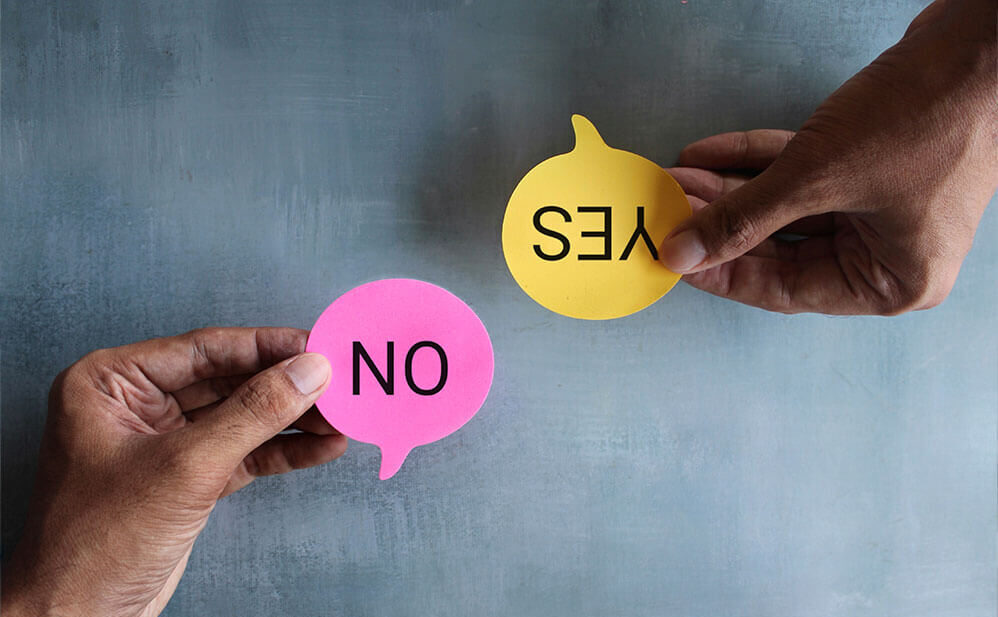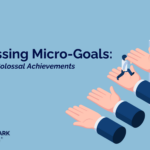Do You Like Me? Check Yes or No…
Open ended vs. closed questions—which is better?
The right open-ended questions, asked at the right time, will encourage your prospect to open up and share vital information with you such as their “hot-buttons” or their “pain”.
As you’re mastering the discovery phase and implementing the art of asking questions and listening, it’s very obvious to see the benefits of asking open-ended questions.
A good sales professional will take time to understand this information and build their presentation around the needs of their buyer.
Does this mean that yes/no questions or closed-ended questions should not be asked?
Though they should be used sparingly and strategically, closed-ended questions can be very helpful during the discovery phase and can be used to help you narrow down options and lead the prospect down the right path.
While open-ended questions typically start with, “Who”, “What”, “Where”, and “Why”, closed ended questions start with words such as, “Are”, “Will”, “Is”, “Have”, or “Does”.
Check out the following tips to help you properly apply this technique in your sales formula:
- Always be prepared. One advantage of a yes/no question is that you can easily plan for the response ahead of time. As you’re preparing questions for your next sales presentation, be sure to have a response ready for either answer to each closed-ended question.
- Choice Close. When timed appropriately, the choice close can be a very organic way to help your prospect make a buying decision. Use a series of choice closes throughout the interaction to help discover the best way to meet your prospect’s needs.
- Qualifying. Qualifying a prospect is a critical part of the sales process and when applied correctly can save you and your prospect from wasting time together. If your company targets a niche audience, identifying the right prospect is critical. Asking a direct question that helps identify if a prospect needs your niche product or service can help assure you’re using your resources appropriately.
- Scheduling an appointment. Chances are, your prospect is a busy person and you’re going to work hard to schedule an appointment. Asking a prospect when the best time to meet can get you pushed off for weeks or sometimes months. An open-ended question such as, “When is a good time for us to get together” is often subliminally answered with, “Never”. Best case, you’ll get scheduled for a time after their big project and after they’ve had a chance to recover from their big project. Instead, give prospects a series of choice closes starting from a broad timeframe and narrowing it down to a specific date and time. For example, “Is your schedule less crazy towards the beginning or the end of next week?” From there, continue to narrow down the options, “Sounds like you have a big day on Tuesday, so what would be better, Thursday or Friday? Friday is great, would morning or afternoon be better?Okay, in the morning I’m available first thing at 8:30, or 11am, which is better for you?”
As you can see, there are many ways to utilize closed-end questions while interacting with prospects. So be sure to design a sales presentation that strategically uses a blend of open-ended questions and closed-ended questions to learn about your prospect’s needs and how you can best serve those needs.





Comments
Wisdom of how and when to ask the right questions and indeed the right type of question is a skill that some people never really get. Putting it down, the way you have, should prove to be really helpful to anyone involved in the sales process.
Thanks for the feedback Chris. I agree, it can be difficult to decipher which questions are the best at a specific time. The good news is, we have seen people improve in this skill with the right coaching and self-development.
Keep this going please, great job!
Thanks so much for checking out the post… be sure to follow us on our newsletter or on LinkedIn: https://www.linkedin.com/company/benchmark-training-llc
Your way of describing all in this article is really nice, every one be capable of effortlessly be aware of it,
Thanks a lot.
You actually make it seem so easy but I find this topic
to be really something which I think I would never understand.
I am looking forward for your next post, I’ll try to get the hang of it!